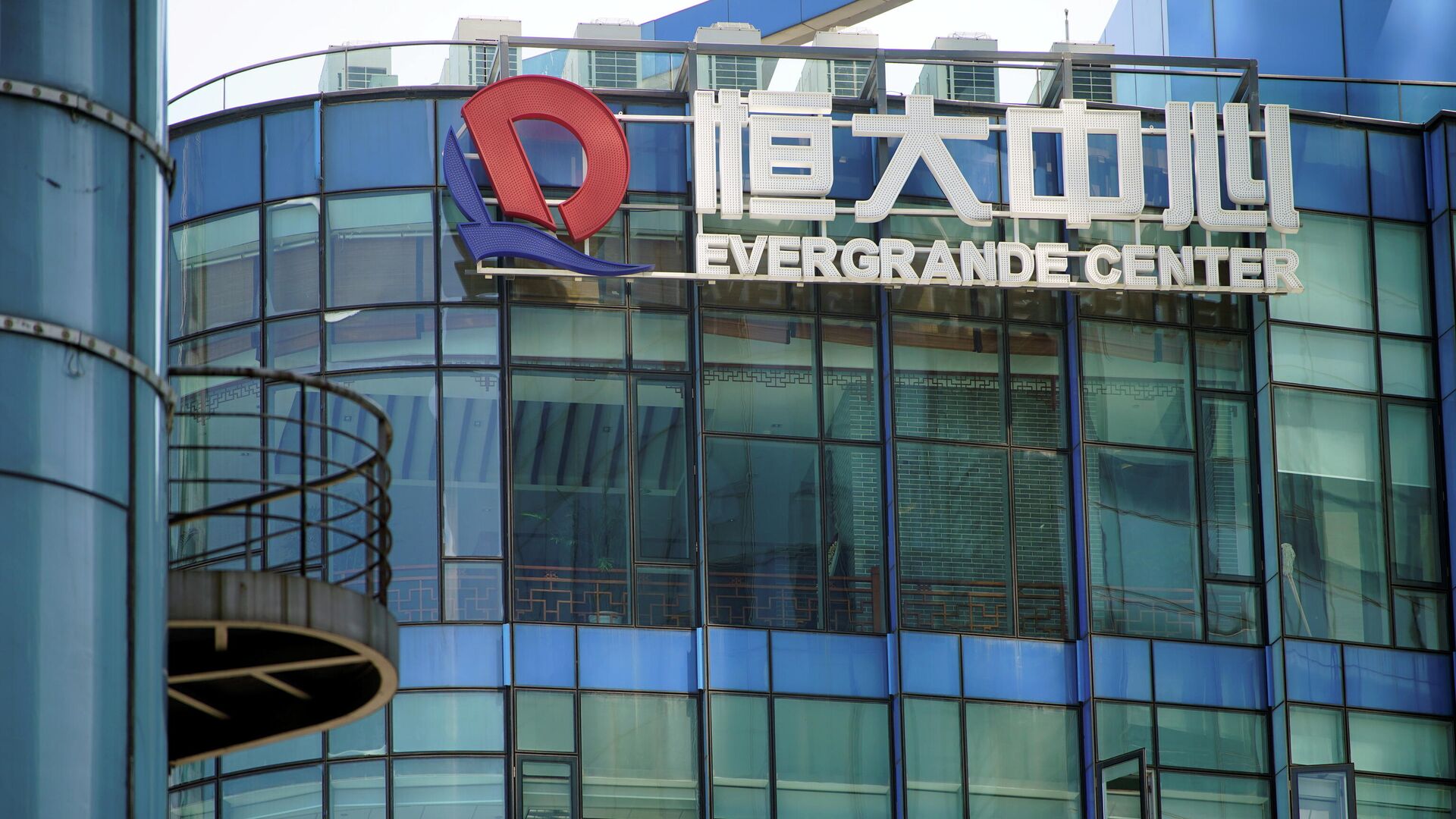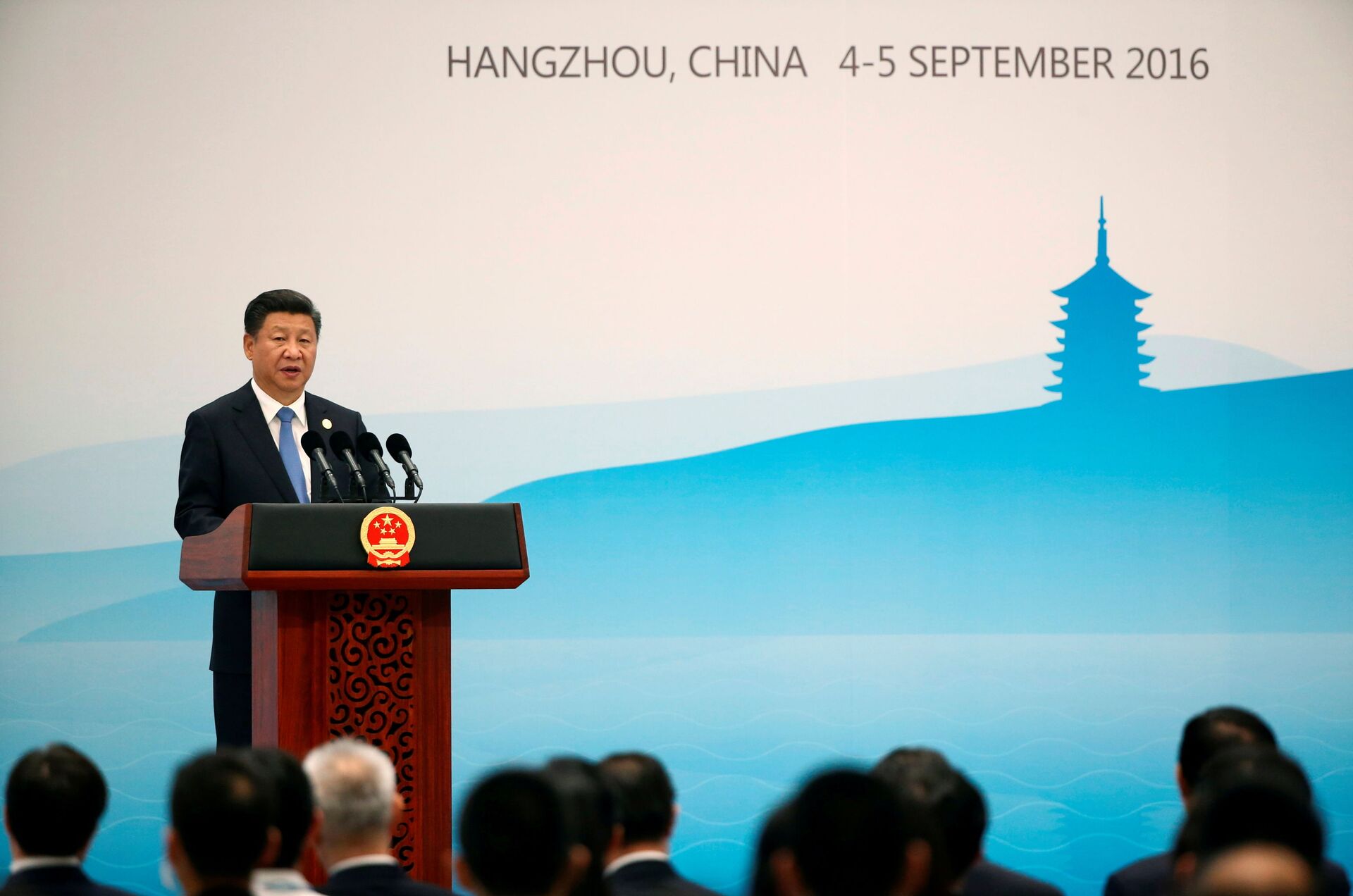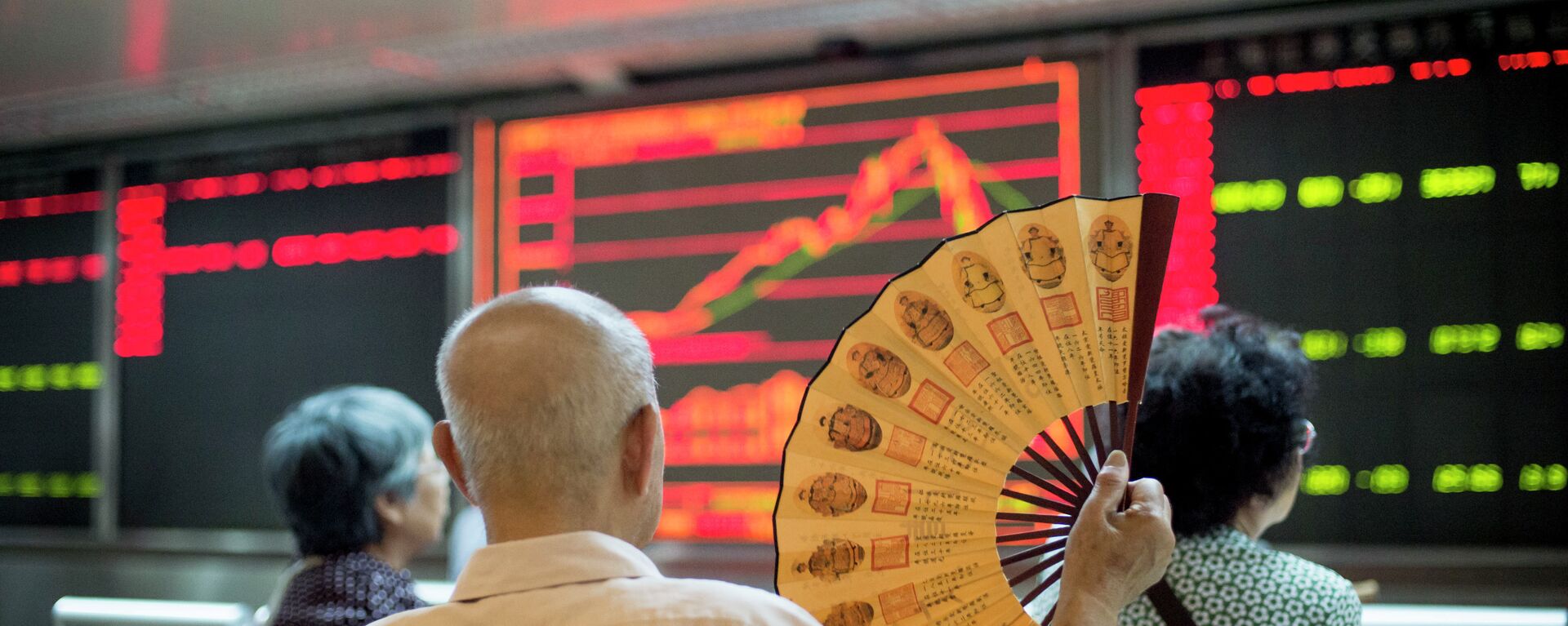China Reportedly Mulls Bailing Out Evergrande Developer As Default, Economic Shock Loom

© REUTERS / ALY SONG
Subscribe
The threat of Evergrande's bankruptcy has sent shockwaves through Asian and western stock markets with all them plunging into the red on 20 September. The Chinese development giant owes hundreds of billions of dollars to domestic and foreign banks, investors and bond-holders, and its default might prompt a significant drop for the Chinese economy.
The government of Xi Jinping is still considering how to act in regard to the threat that its largest developer Evergrande will default on its obligations and potentially go bankrupt, The Financial Times reported citing an anonymous government adviser.
According to the source, Beijing is on the horns of a dilemma - on the one hand, the Chinese economy is heavily in debt, having hit 290 percent of GDP recently. However, Evergrande's collapse will leave thousands of Chinese retail investors nursing huge losses and several thousand citizens without a home. There are also a number of banks - both foreign and domestic - that lent money to Evergrande meaning that its collapse will deal a heavy blow to the China's development sector and economy.
"It is only the tip of the iceberg. If something really dramatic happens to Evergrande, the risk premium for other developers’ debt will be much higher, creating another drag for the sector," the adviser said.
But bailing out such a giant will not only cost a vast moment, it will also set an "expensive" precedent, prompting other troubled companies to come begging for state assistance, the FT cited another source, allegedly familiar with Evergrande's talks with China's financial regulators, as saying.
"Many developers are under stress because of policy tightening. If the government steps in to help Evergrande, all the other major developers will make similar requests. There is no way the government can save them all," the source said.
Election Politics and Possible Salvation for Evergrande
Even though Beijing reportedly has its reservations about helping Evergrande, it did save several other businesses this year from going bankrupt. The government organised debt restructuring for state-owned asset manager China Huarong and HNA Group, a conglomerate which deals in aviation and tourism. Evergrande's collapse would affect many more people than would the failure of either China Huarong or HNA, but would be much more costly to avoid.

China's President Xi Jinping speaks at a news conference after the closing of G20 Summit in Hangzhou, Zhejiang Province, China, September 5, 2016. REUTERS/Damir Sagolj/File Photo
© REUTERS / Damir Sagolj
But it is not just the cost of the bail-out, but also the political implications of the move, that might worry Beijing, the FT suggests. The country's President Xi Jinping will be moving to secure his third term next year and has already announced what is perceived as his re-election platform – a "common prosperity" policy which is meant to iron out inequalities in how wealth is distributed in the country and has already led to major economic shifts, slashing profits of some technological and educational businesses.
So if the government bails out Evergrande, it runs the risk of being accused of hypocrisy as it would save the vast fortune of the company's billionaire founder - Hui Ka Yan, the fifth-richest person in the country, who owns 70 percent of Evergrande. However, the FT's source, an adviser to the Chinese government who remained anonymous during the interview, hinted that Beijing might find a way to bail out Evergrande without rescuing Hui's wealth. The adviser brought up the case of HNA Group, where the government replaced the company's chairman and found a state-owned white knight investor, who bought out a major asset of the conglomerate.
"The company would survive but they would push out management. That’s what happened with HNA. It stabilised the company, its share prices and bond prices. Officials have a lot of confidence in this approach," the FT's source said.
At present, Evergrande owes banks, suppliers, retail investors and bondholders $300 billion, and it has $368 billion. The company fell into such difficulties because of exorbitant borrowing, the aggressive building of new objects and a 20 percent slowdown in the Chinese housing market. With regular bond interest payments being due on 23 September, concerns have arisen that the company will default on its financial obligations.
The fears that that might really happen sent ripples through the Asian markets. Western markets also experienced falls of 2 or 3 percent as many investors had redirected their money to Chinese assets as global bonds have been at historic low yields, being seen as a safe haven for many traders in times of uncertainty. Some economists questioned such assessment, blaming the stocks' price correction on a spike in COVID-19 cases after a summer rally.
Evergrande itself issued a statement on 22 September in which it pledged to honour all onshore bond payments without saying whether they would be paid on time. However, the development giant gave no word on keeping its obligations to the high-yield offshore bondholders, which are estimated to be worth about $20 billion.





